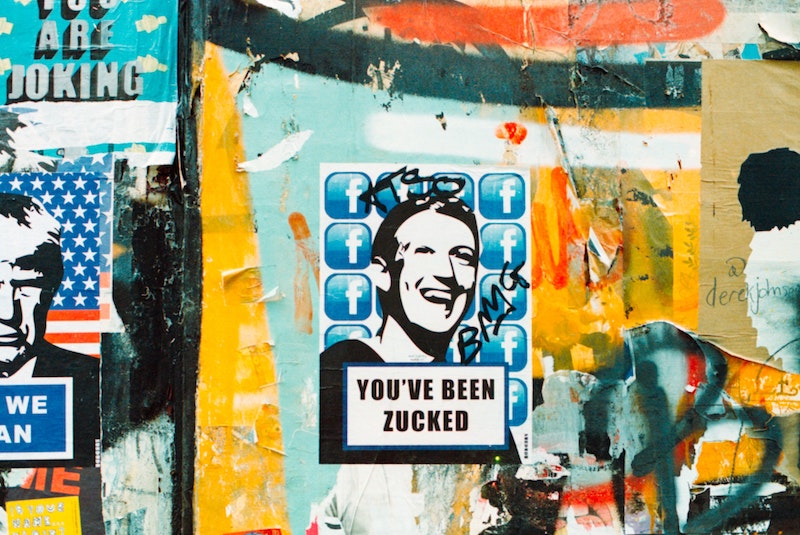
Does the recent Facebook data scandal spell the end of an era for the tech giants or have they become too big to reel back?
On 17 January, Intelligence Squared chaired a debate (given that Mark Zuckerberg was only recently fending off questions from Congress) regarding the break-up of the tech giants, namely Facebook, Amazon, Apple and Google.
These four companies have ridden the collective wave of tech appropriation over the course of the last decade, amassing fortunes in the process and becoming inherently embedded in our quotidian lives. Facebook’s recent data scandal involving Cambridge Analytica is only the latest scandal to beset these behemoths, before which questions of tax dodging and misuse of data began to catalyse something of a social backlash late last year.
Does this sound the death knell for big tech or is it just another bug to iron out of the code? Here’s what went down at this thoroughly interesting debate (which you can see in full at intelligencesquared.com):
For a break-up
Speaking in favour of the motion to break up the tech giants was Rana Foroohar, Global Business Columnist and an Associate Editor at the Financial Times, based in New York. She talked about the monopolistic aspects of these companies, the amount of wealth that they hold (and hide) and the addictive technologies and anti-competitive behaviour that they represent. Foroohar made the important point that, in what is probably the biggest case of smoke and mirrors ever, while all of these companies offer free products and services, it is the data they collect that is the valuable commodity, yet they have been largely unaccountable about how they are using it. She was adamant that there needs to be equal access to data transparency and also a shared moral agenda.
Luke Johnson, an entrepreneur and former chairman of Channel 4, was unequivocal on his views about Google in particular. Google is a monopoly, in his view, because it takes 75% of the £100 billion global online advertising spend and 85% of search in the UK market.
His second point was that they can’t be trusted, as demonstrated by Google being found in breach of EU anti-trust laws for skewing search results in their favour, resulting in a fine in excess of €2billion.
Mr Johnson also made the point – a commonly expressed one – that these tech giants are arrogant and believe themselves above regulation. In Johnson’s opinion, they are proponents of industrial scale copyright infringement, their fake news is a massive problem and corporation tax is a sham. This last missive is a sore one indeed: with only 800 software engineers based in Google’s headquarters in London, Google claim they have no meaningful operation in the UK and therefore do not pay tax. Yet they turnover £6 billion in the UK, which should result in a tax bill in the region of £1.5 billion.
Against a break-up
On the other side of the fence sat Pena Arkham, Professor of Law at the University of Leeds. She said that the proponents would have to prove that the tech giants are anti-competitive and that they harm the consumer. A break up of the tech giants would, in her view, only happen if it could be proven to be proportionate to the damage they were causing. Asked about whether they disrupt competitive processes and are a monopoly she argued that there were plenty of other players out there such as Yahoo and Bing. As for harming consumers, she highlighted the point that they provide free services and positive benefits three times the value of the advertising revenue that they generate. Fear, she said, was the real reason for the call of a break-up rather than any nefarious activity and finished by saying that a successful competitor should not be turned upon when they have won the race.
Elizabeth Linda, formerly of Facebook (and thus with the most difficult task of the night) discussed her former employer in the light of being a civil society leader and a global platform for disenfranchised people. Importantly, she questioned the definition of a tech business, arguing that what Amazon does is no different from what Walmart does. The provenances of the two companies may be very different (and from very different eras), but really they are both retail businesses. These types of businesses require scale to operate efficiently and technology gives them that ability.
The result
In terms of the actual vote, it started off with 39% for the motion to break up, 24% against and ended with 46% for the motion and 52% against.
There was certainly some common ground around the need for greater transparency of data use and the ability of the user to choose what data is accessible to these companies. I daresay most of us have no idea what of our data is used and how it is used. For my part, I believe that some form of regulation will have to be applied sooner or later due to the sheer scale of these companies.
How would you vote?
















